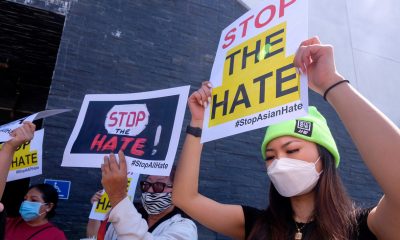Community
More than 90% of Californians Voted by Mail in Governor Recall Election
About 91% of all votes cast in the recall election were submitted via the mail-in option. Voting by mail in the United States started in the late 1800s. But in a first-in-the-nation execution, California mailed ballots to every registered voter in the state, a move voting rights advocates praised for setting new standards for expanding enfranchisement.
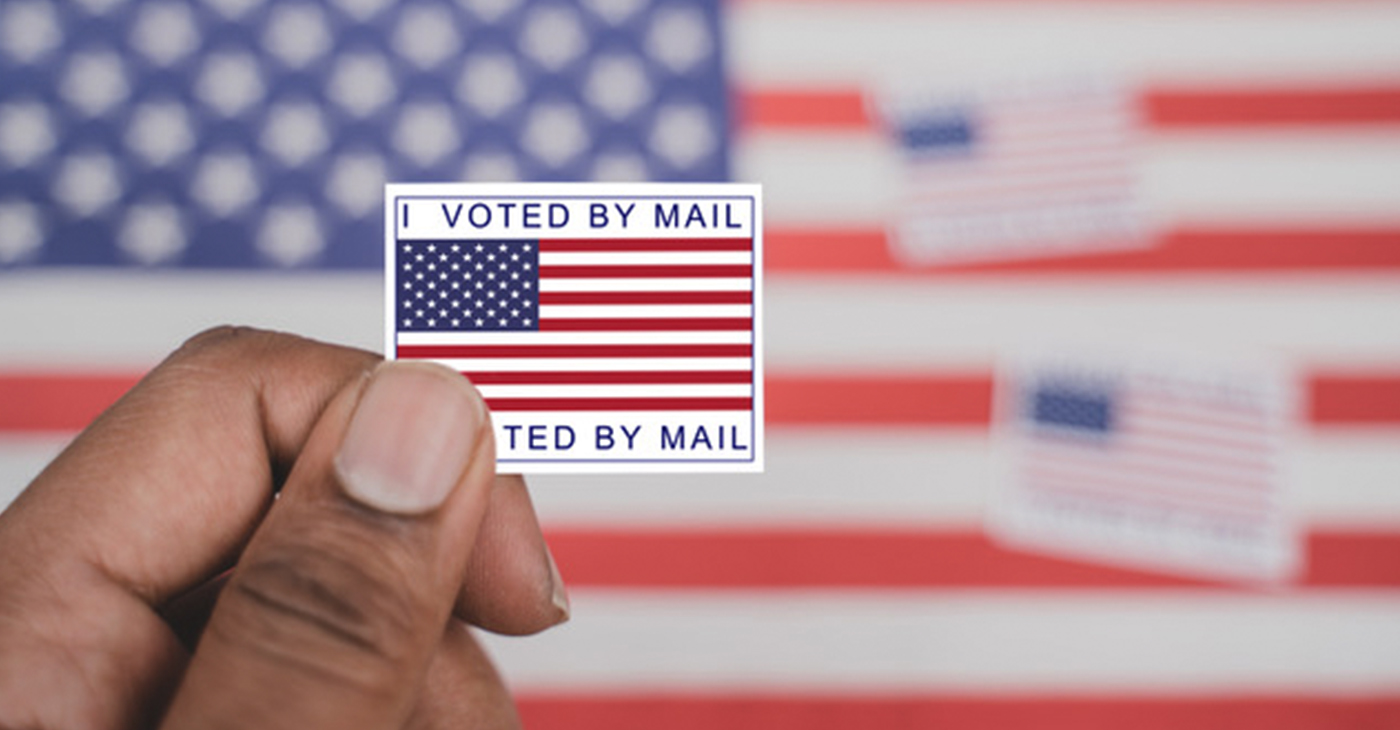
By Edward Henderson | California Black Media
California Secretary of State Shirley N. Weber has certified the votes from the Sept. 14, 2021, California Gubernatorial Recall Election. The election marked the second time since 1913 that a recall petition made it to the polls in California.
The results for the question on the ballot asking whether Gov. Gavin Newsom should be recalled were: 4,894,473 yes votes and 7,944,092 nos.
California election law requires results for each replacement candidate to be tabulated and recorded. They can be found here.
The leading replacement candidate was Larry Elder who garnered 3,563,867 votes. His tally counted for 48.4% of all votes for replacement candidates. Almost 5.5 million voters left their response blank for who they believed the replacement candidate should be.
“Despite the ongoing uncertainties of the pandemic, I am encouraged that millions of Californians were still committed to participating in the California Gubernatorial Recall Election – nearly 3.5 million more than participated in the 2003 recall election,” Weber said after announcing the certification of the vote. “As I’ve said before, democracy matters to Californians and giving them the option to participate early by mail, at secure drop-off locations or safely in person has clearly reinforced their commitment to making their voices heard.”
In total, there were 22,057,154 registered voters (as of August 30, 2021), a state record for California. A total of 12,892,578 votes were cast — 3,479,084 more votes than were cast in the last statewide gubernatorial recall election in 2003.
The California Secretary of State’s office made a substantial effort to conduct the election as smoothly and effectively as possible considering the unprecedented challenges pandemic safety restrictions presented. An online system for tracking mail-in ballots in real time was just one of a number of innovations implemented to give voters confidence that their voices would be heard.
About 91% of all votes cast in the recall election were submitted via the mail-in option. Voting by mail in the United States started in the late 1800s. But in a first-in-the-nation execution, California mailed ballots to every registered voter in the state, a move voting rights advocates praised for setting new standards for expanding enfranchisement.
“I also want to commend the state’s elections officials and poll workers for stepping up to ensure the recall ran so smoothly,” Webber said. “The short timeline and the logistics of providing voter information, ensuring access to the election, securing the ballots and protecting the health and safety of voters were a challenging endeavor. Their effectiveness at delivering an accessible, fair and secure election under these conditions deserves our respect. I am proud to serve with them in the administration of our democracy.”
The only successful California gubernatorial recall election was held in 2003 when Gov. Arnold Schwarzenegger replaced Gov. Gray Davis after winning 48.6 % of the vote.
Every California governor since 1960 has faced some form of a recall attempt. Newsom’s detractors cited his handling of the COVID-19 pandemic as the basis for this most recent attempt.
Since surviving the recall, Newsom has signed 92% of the bills that have come to his desk into law. Among notable measures are sentencing reform for convicts and increasing commercial real estate taxes to fund affordable housing initiatives and fight homelessness.
“Traditionally, we have governors who have been more centrist than Newsom,” said Bill Whalen, a policy fellow at the Hoover Institution, in an interview with Newsweek. The Hoover Institution is a conservative think tank at Stanford University in Palo Alto. “With the recall now gone, this is a governor who is really not threatened in any way.”
Activism
Oakland Post: Week of June 12-18, 2024
The printed Weekly Edition of the Oakland Post: Week of June 12-18, 2024

To enlarge your view of this issue, use the slider, magnifying glass icon or full page icon in the lower right corner of the browser window. ![]()
Antonio Ray Harvey
More Segregated Than Deep South: ACLU Releases Report on Calif. Public Schools
The 2024 State of Black Education: Report Card was recently published by the American Civil Liberties Union California Action (ACLU California Action). It states that California is the third most segregated state for Black students. Co-author of the report, policy counsel Amir Whitaker from ACLU Southern California explained the criteria the ACLU use to rank California during the commemoration of the 70th anniversary of the landmark 1954 U.S. Supreme Court decision Brown vs. Board of Education held at the State Capitol the day after the Memorial Day holiday.
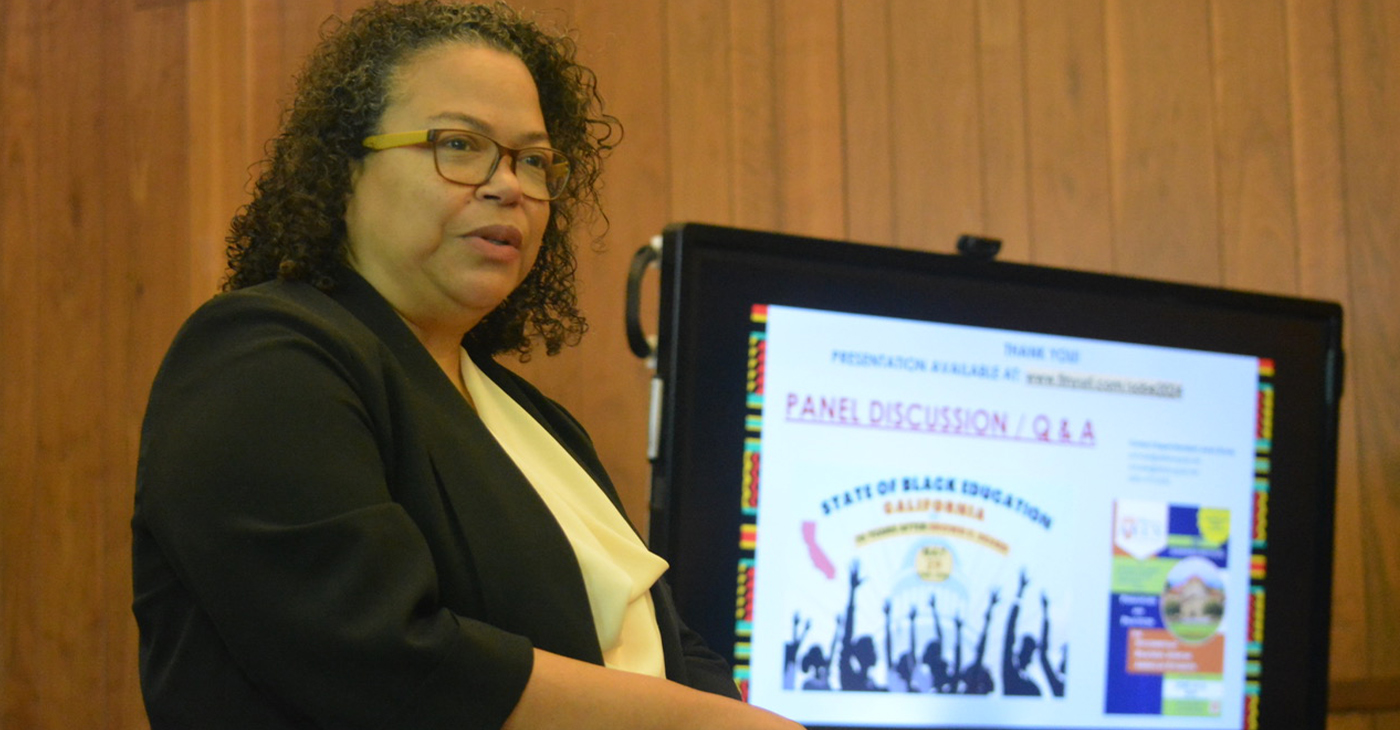
By Antonio Ray Harvey, California Black Media
The 2024 State of Black Education: Report Card was recently published by the American Civil Liberties Union California Action (ACLU California Action).
It states that California is the third most segregated state for Black students.
Co-author of the report, policy counsel Amir Whitaker from ACLU Southern California explained the criteria the ACLU use to rank California during the commemoration of the 70th anniversary of the landmark 1954 U.S. Supreme Court decision Brown vs. Board of Education held at the State Capitol the day after the Memorial Day holiday.
“For every state in the Deep South, California (schools) are more segregated,” Whittaker said. “People often think that California is not segregated or unequal as Deep South states and others. The inequalities here (in California) are actually wider.”
New York and Illinois are ahead of California regarding the racial diversity of their student bodies. According to a report May 2022 report by Stanford Graduate School of Education, the Los Angeles, Philadelphia, and New York City school districts are in the top 10 most racially segregated districts for White-Black, White-Hispanic, and White-Asian segregation based on the average levels from 1991-2020.
In bigger school districts, segregation between low-income (students who are eligible for free lunch) and non-low-income students increased by 47% since 1991, according to the Stanford Graduate School’s report.
“That’s why it’s important to look at this data,” Whitaker said. “When you have millions of people living in places like Los Angeles, Chicago, and New York, the urban areas are a lot more segregated than the south. That’s a big part of it.
A number of factors contribute to the segregation of schools in California such as parents sending their children to private schools, others optioning for homeschooling, and other reasons, Whitaker said.
The Brown v. Board of Education case declared that separating children in public schools based on race was unconstitutional. However, Whitaker pointed to cases after the landmark decision that circumvented that federal law.
According to a 2014 report by the Civil Rights Project, in the 1990s, decisions by the U.S. Supreme Court decision ended federal desegregation orders in San Francisco and San Jose. In addition, court decisions in the state that ordered desegregation in the 1970s were overturned by the 1990s. Legally, California has no school integration policy to adhere to.
“This is why we did this report. There needs to be a report just on this issue (of school segregation),” Whitaker told California Black Media. “Right now, there’s no task force or anything addressing it. I have never seen the California Department of Education talk about it. This is a pandemic (and) a crisis.”
ACLU Northern California hosted an overview of the report and panel discussion at the State Capitol on May 29. California Black Legislative Caucus member Assemblymember Mia Bonta (D-Alameda) and Sen. Steven Bradford were the guest speakers. Parents, students, educators, and Black education advocates from all over the state attended the 90-minute presentation at the State Capitol.
School segregation is the No. 1 issue listed in among the report’s “24 areas of documented inequality,” along with problematic trends of racial harassment, a continuous decline of Black student enrollment, school closures, connection with school staff, chronic absenteeism, low Black teacher representation, and parent participation.
Art
Mayor Breed, Actor Morris Chestnut Attend S.F.’s Indie Night Film Festival
On June 1, the acclaimed Los Angeles-based Indie Night Film Festival arrived at the Kabuki Theater in San Francisco. San Francisco native Dave Brown, Founder and CEO of the Indie Night Film Festival, has a vision for the film industry that is squarely focused on promoting the many talented producers, actors, and designers contributing to this billion-dollar industry. The festival has been running for 12 years and it’s only up from here, he says.

By Y’Anad Burrell
On June 1, the acclaimed Los Angeles-based Indie Night Film Festival arrived at the Kabuki Theater in San Francisco.
San Francisco native Dave Brown, Founder and CEO of the Indie Night Film Festival, has a vision for the film industry that is squarely focused on promoting the many talented producers, actors, and designers contributing to this billion-dollar industry. The festival has been running for 12 years and it’s only up from here, he says.
A weekly celebration of cinematic artistry designed to elevate emerging talent while providing a platform for networking and collaboration, entrepreneur Dave Brown created Indie Night to bridge gaps within the filmmaking community by fostering connections between like-minded individuals worldwide. The Indie Film Festival currently has over 450 film submissions worldwide, and its cinematic vault only continues to grow.
The festival showcased over 10 short films and trailers, and featured Faces of the “City: Fighting for the Soul of America,” produced by veteran actor Tisha Campbell. This film is about the vibrancy and legacy of San Francisco. The festival also previewed “When It Reigns,” a trailer by Oakland’s burgeoning filmmaker Jamaica René.
Indie films have not just challenged traditional cinematic norms; they’ve shattered them. These films offer unique storytelling perspectives and push creative boundaries in truly inspiring ways. With their smaller budgets and independent spirit, they often tackle unconventional subjects and portray diverse characters, providing a refreshing alternative to mainstream cinema. As a result, indie films have resonated with audiences seeking an escape from formulaic blockbusters and are increasingly celebrated for their authenticity and originality.
Organizers say the mission of Indie Night is to elevate the craft of independent artists and creators. It also provides a venue for them to showcase their work, network, and exchange information with new and established creatives. It creates a community that values and supports independent art.
For more about the Indie Night Film Festival, visit www.indienightfilmfestival.com.
-
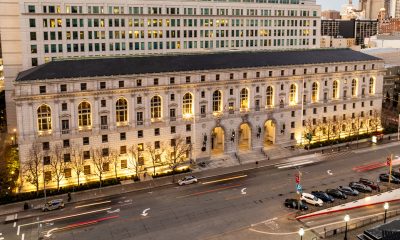
 Business4 weeks ago
Business4 weeks agoCal. Supreme Court Could Strip Gov and Legislature of Power to Raise Taxes
-
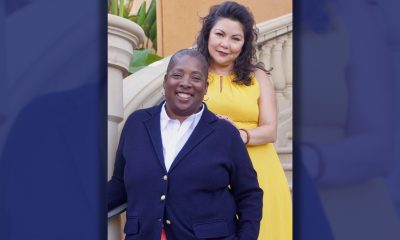
 California Black Media4 weeks ago
California Black Media4 weeks agoActivist and Organizer Peggy Moore and Wife Die in Fatal Car Crash
-

 California Black Media4 weeks ago
California Black Media4 weeks agoExpect to See a New Flat Rate Fee of $24 on Your Electricity Bill
-
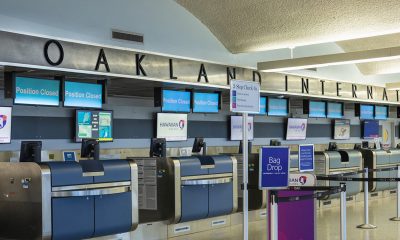
 Bay Area4 weeks ago
Bay Area4 weeks agoOakland International Airport Will Now Be Called ‘San Francisco Bay Oakland International Airport’
-
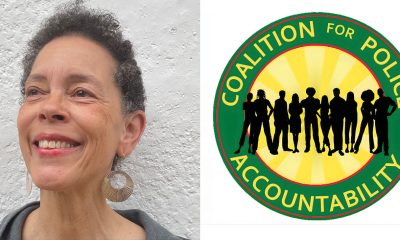
 Bay Area4 weeks ago
Bay Area4 weeks agoRadical Proposal to Limit the Power of Oakland’s Police Commission
-
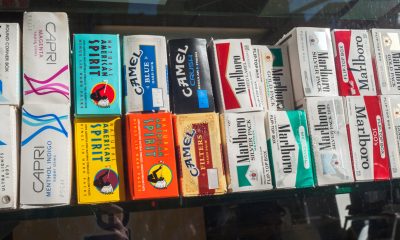
 Business4 weeks ago
Business4 weeks agoBanning Menthol Cigarettes: California-Based Advocacy Group Joins Suit Against Federal Govt.
-
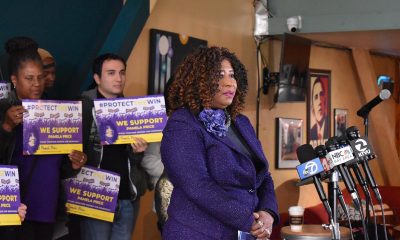
 Alameda County4 weeks ago
Alameda County4 weeks agoAlameda DA Pamela Price is Ready to ‘Protect the Win’ in Upcoming Recall Election
-
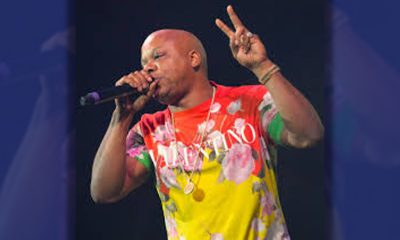
 Arts and Culture4 weeks ago
Arts and Culture4 weeks agoThird Annual Town Up Tuesday Lifts Oakland’s Community, Culture and Joy




